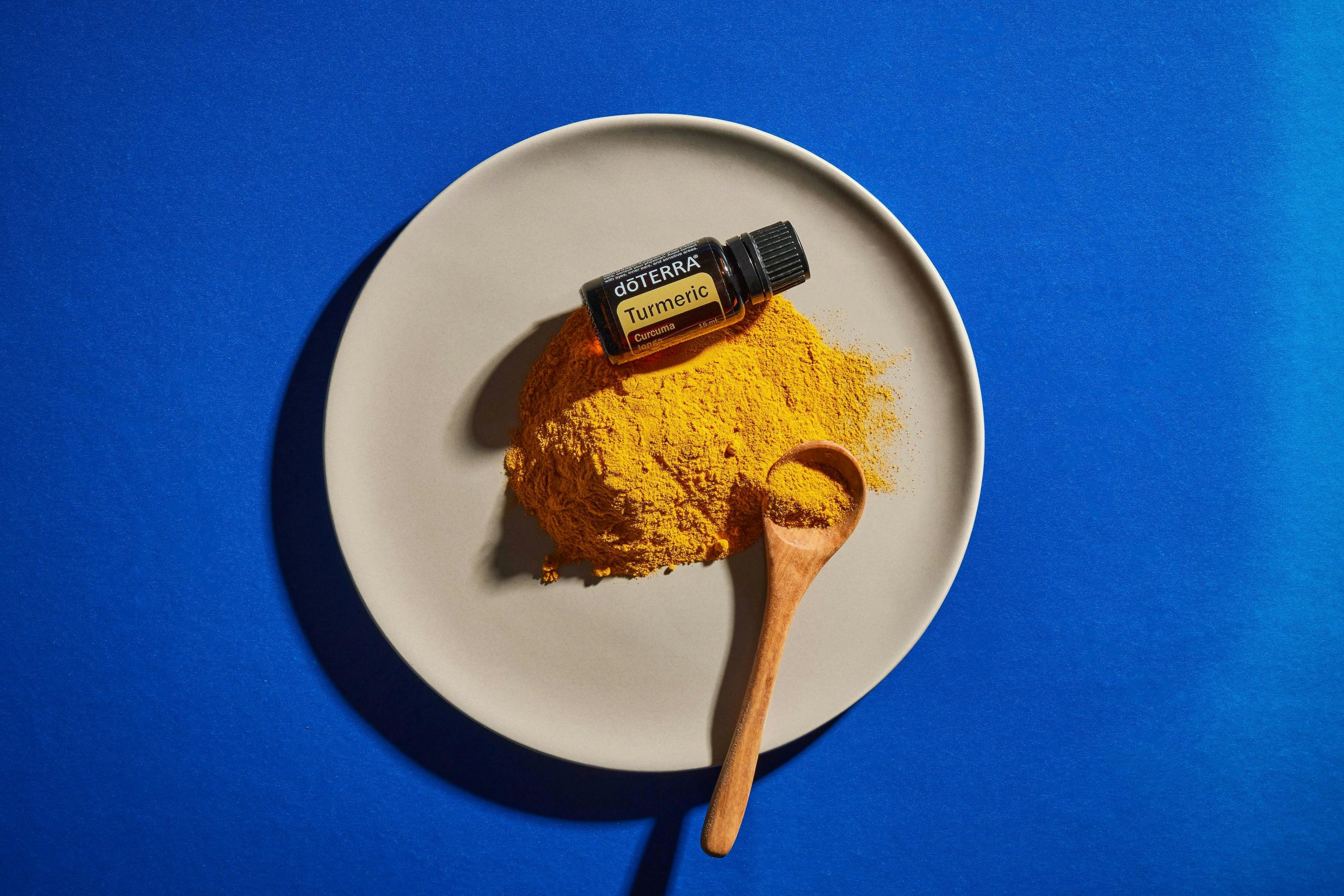How Long Does It Take for Turmeric to Work and What to Expect


Turmeric has become one of the most popular natural supplements thanks to its powerful anti-inflammatory and antioxidant properties. But many people who start taking turmeric ask the same question: how long does it take for turmeric to work?
The answer depends on several factors, including your health goals, dosage, and how consistently you take it. While some people notice results within a few days, others may need several weeks to feel a real difference. This guide explains what to expect, how turmeric works in the body, and how to maximize its benefits for long-term results.
Understanding How Turmeric Works

Turmeric’s effectiveness comes from its active ingredient, curcumin — a compound known for reducing inflammation, supporting joint health, improving digestion, and even boosting brain function.
However, curcumin is not easily absorbed by the body. This is why it often takes time for people to notice changes. Curcumin needs to build up in your system, and the body must be able to absorb it properly to see its full effects.
To make curcumin more bioavailable (easier for your body to absorb), experts often recommend combining turmeric with black pepper (piperine) or healthy fats, like olive oil or avocado. These ingredients enhance absorption and help the compound stay longer in your bloodstream.
Typical Timelines: When You Can Expect Results
While everyone’s body responds differently, here’s a general breakdown of how long it takes to see results depending on your goals:
- For Inflammation & Joint Pain Relief
If you’re taking turmeric for arthritis, stiffness, or inflammation, most people begin noticing improvement within 2 to 4 weeks.
- Short-term (1–2 weeks): Some may feel mild relief due to reduced inflammation.
- Medium-term (3–6 weeks): Noticeable improvement in mobility and reduced stiffness.
- Long-term (6–12 weeks): Consistent relief, especially with daily use.
Studies have shown that turmeric supplements with 500–2,000 mg of curcumin daily can reduce symptoms of osteoarthritis within this time frame.
- For Digestive Health
Turmeric can help with bloating, gas, and mild indigestion by supporting bile production and reducing gut inflammation.
- Most people notice improvements within 1–2 weeks of consistent use.
- For Skin & Immune Health
Turmeric’s antioxidants help combat free radicals that affect skin clarity and immune response.
- Visible results in 4–8 weeks, especially when combined with a balanced diet and hydration.
- For Mood & Brain Health
Curcumin may boost serotonin and dopamine levels, improving mood and focus.
- Mood-related benefits often take 4–6 weeks of regular supplementation.
Remember: turmeric works gradually, not instantly. Its natural compounds build up in your body over time, delivering steady, long-term benefits rather than quick fixes.
Factors That Affect How Quickly Turmeric Works
Turmeric doesn’t work the same for everyone. Several factors can influence how quickly you start noticing its effects. Understanding these can help you make the most of your supplement and see results sooner.
Dosage
The amount of turmeric or curcumin you take directly affects how quickly it starts working. Taking too little may not provide enough active compounds for your body to notice a difference. Most studies show that 500–1,000 mg of curcumin per day is effective for managing inflammation, joint pain, and general wellness. However, higher doses may be needed for chronic conditions—always consult your doctor before increasing your intake.
Form of Turmeric
Not all turmeric supplements are created equal. The form you take determines how well and how fast your body absorbs it:
- Capsules or tablets: Convenient and accurately dosed but may take longer to digest.
- Powders: Great for smoothies or cooking but have lower absorption rates.
- Liquid extracts or liposomal turmeric: Absorbed faster by the body, often showing results sooner.
Choosing a high-quality curcumin extract or a liposomal form ensures better absorption and quicker effects.
Bioavailability Enhancers
Curcumin alone has poor bioavailability, meaning your body struggles to absorb it. To fix this, pair turmeric with black pepper (piperine) or healthy fats like coconut oil, avocado, or nuts. Piperine can enhance curcumin absorption by up to 2,000%, helping it reach your bloodstream faster and stay longer, allowing you to feel the benefits sooner.
Diet & Lifestyle
Your overall lifestyle can either boost or block turmeric’s effectiveness. A balanced, anti-inflammatory diet rich in fruits, vegetables, and omega-3 fatty acids helps your body respond better to curcumin. Regular exercise improves blood flow and reduces inflammation, while adequate sleep and hydration support recovery and absorption. Poor eating habits, smoking, and stress, on the other hand, can delay noticeable improvements.
Consistency
Turmeric’s effects build over time—it’s not a supplement that delivers instant results. Skipping doses or taking it irregularly prevents your body from maintaining steady curcumin levels. For best results, take turmeric daily for at least 4 to 8 weeks. Consistency helps the compound accumulate in your system, leading to stronger and longer-lasting benefits.
Individual Metabolism
Every person’s body processes supplements differently. Factors like genetics, gut health, age, and body weight can all affect how efficiently you absorb and use curcumin. For example, someone with a healthy gut microbiome may notice faster results, while those with digestive issues might take longer to experience benefits. Listening to your body and maintaining a consistent routine helps you understand what works best for you.
In short, turmeric’s speed and effectiveness depend on your dosage, product quality, lifestyle, and consistency. By combining the right supplement with supportive habits, you can make sure turmeric starts working as efficiently as possible.
How to Take Turmeric for the Best Results

If you’re wondering when is the best time to take turmeric, the answer depends on your routine and goals. For most people, taking turmeric once or twice daily with meals helps maximize absorption and minimize stomach irritation.
Tips for Taking Turmeric Effectively:
- Take with food: Curcumin absorbs better when taken with fats like avocado, nuts, or olive oil.
- Pair with black pepper: Piperine enhances absorption by up to 2,000%.
- Be consistent: Take it daily for at least 4–8 weeks to experience full benefits.
- Avoid taking on an empty stomach: It can cause mild discomfort in sensitive individuals.
- Combine with a healthy lifestyle: Balanced diet, exercise, and hydration enhance turmeric’s impact.
Common Mistakes That Delay Results
If you’ve been taking turmeric but don’t see results, you might be making one of these common mistakes:
- Taking too low of a dose: Some supplements contain very little curcumin — always check the label.
- Using poor-quality products: Not all turmeric supplements are standardized for curcumin content. Look for products with 95% curcuminoids.
- Skipping black pepper or fat: Without these, your body absorbs very little curcumin.
- Expecting immediate results: Turmeric works over time — patience and consistency are key.
- Not addressing other health issues: Chronic inflammation from diet, stress, or poor sleep can reduce turmeric’s effectiveness.
Short-Term vs. Long-Term Benefits
Turmeric offers both short-term and long-term health benefits, depending on how you use it:
Short-Term Benefits (Within Weeks):
- Reduced bloating and mild inflammation
- Improved digestion and energy levels
- Slight mood enhancement
Long-Term Benefits (After 2–3 Months):
- Noticeable reduction in chronic pain or stiffness
- Better joint mobility
- Enhanced immunity and skin health
- Reduced systemic inflammation and oxidative stress
The key is consistency — taking turmeric regularly as part of your wellness routine yields lasting results.
How to Choose the Right Turmeric Supplement
When shopping for turmeric, not all products are equal. Some have very little curcumin, while others lack essential absorption boosters.
What to Look For:
- Standardized Curcumin Extract (95%): Ensures high potency.
- Contains Piperine or Black Pepper Extract: Boosts absorption.
- Third-Party Tested: Verifies purity and dosage accuracy.
- Capsule or Liquid Form: These are absorbed more efficiently than plain powder.
- Reputable Brand: Choose companies with transparent ingredient lists and customer reviews.
When to Talk to Your Doctor
While turmeric is safe for most people, consult your doctor if you:
- Take blood thinners (like warfarin or aspirin)
- Have gallbladder problems or kidney stones
- Are pregnant or breastfeeding
- Take diabetes or blood pressure medications
Also, if you don’t notice improvement after 8–12 weeks of consistent use, your doctor may recommend adjusting your dose or trying another anti-inflammatory approach.
Combining Turmeric with a Healthy Lifestyle
Turmeric works best when part of an overall wellness plan. Combine it with:
- A nutrient-rich diet: Focus on anti-inflammatory foods like leafy greens, salmon, and berries.
- Regular exercise: Improves circulation and reduces inflammation.
- Proper sleep: Helps your body repair and recover naturally.
- Hydration: Supports toxin removal and nutrient absorption.
Together, these habits amplify turmeric’s benefits for long-term health and vitality.
Final Thoughts
So, how long does it take for turmeric to work? For most people, results begin appearing in 2 to 8 weeks with consistent use. Those using it for joint pain or inflammation may notice relief sooner, while others seeking overall wellness benefits may take longer.
Remember, turmeric isn’t a quick fix — it’s a natural supplement that supports your body over time. Pairing it with a healthy lifestyle, high-quality supplements, and patience ensures you get the best possible results.
With regular use, turmeric can become a powerful addition to your daily routine — supporting inflammation control, digestion, joint health, and overall well-being for years to come.